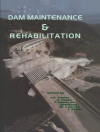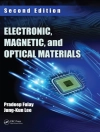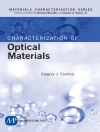Nanorobotics and Nanodiagnostics in Integrative Biology and Biomedicine ‘Nanorobotics and nanodiagnostics” can be defined as a new generation of biohybrid and nanorobotics that translate fundamental biological principles into engineering design rules, or integrative living components into synthetic structures to create biorobots and nanodiagnotics that perform like natural systems.
Nanorobots or nanobots are structured of a nanoscale made of individual assemblies. They can be termed as intelligent systems manufactured with self-assembly strategies by chemical, physical and biological approaches. The nanorobot can determine the structure and enhance the adaptability to the environment in interdisciplinary tasks.
‘Nanorobotics and nanodiagnostics’ is a new generation of biohybrid that translates fundamental biological principles into engineering design rules to create biorobots that perform like natural systems.
These biorobotics and diagnostics can now perform various missions to be accomplished certain tasks in the research areas such as integrative biology and biomedicine.
‘Nanorobotics and Nanodiagnostics in Integrative Biology and Biomedicine’ sheds light on a comprehensive overview of the multidisciplinary areas that explore nanotherapeutics and nanorobotic manipulation in biology and medicine. It provides up-to-date knowledge of the promising fields of integrative biology and biomedicine for nano-assisted biorobotics and diagnostics to detect and treat diseases that will enable new scientific discoveries.
Tabla de materias
Preface.- Nanorobotics and Nanodiagnostics in Integrative Biology and Biomedicine.- Self-Assembled Polymeric Micelles as a Drug Carrier.- Polymer Nanohybrid Patches for Improved Hemostasis and Wound Healing Applications.- 3D Printed Nanorobots and Microswimmers for Therapeutic Advancement.- Magnetoresponsive Nanohybrids as Promising Nanodiagnostic Tools for Bioimaging.- Nanotherapeutics: An Insight into Healthcare and Multi-Dimensional Applications in the Medical Sector of the Modern World.- Design Strategies for Physical-Stimuli-Responsive Programmable Nanotherapeutics.- Functionalized Protein Nanobot-Based Therapy.- Photothermal Nanomaterials for Wound Monitoring and Cancer Biomedicine.- Fundamental Nano-Hybrid Polymers for Nanorobotics and Nano-Diagnostics.- Wearable Biosensor Nano- and Micro-Systems for Medical Diagnostics.- Smart Biosensors Based on Porous Graphene Scaffolds for Chronic Wound Care.- Nanorobotics and Nanodiagnostics Toos in Bio-Agricultures.- CRISPR Applications in Nanodiagnostics of Plant Diseases.- Conclusions and Future Prospective of Nanorobotics and Nanodiagnostics.- Bibliography.- Index.
Sobre el autor
Prof. Dr. Ki-Taek Ph. D. is a Professor in the Department of Biosystems Engineering at Kangwon National University, Chuncheon and has been a faculty member since February 2015. Prior to his appointment, he served at the Institute for Nanoscience & Engineering, University of Arkansas, and Dental Research Institute of Seoul National University (SNU) as a postdoctoral fellow after receiving his Ph.D. in Biosystems & Biomaterials Science and Engineering from SNU.
His Ph.D. developed a novel stimuli-assisted platform system that can automatically culture the stem cells that exhibited the unique bioreactor system. His research interests center on improving the understanding, design, and performance of biophysical engineering approaches in molecular & cellular mechanics for controlled stem cells converging the bio/nano-technologies. The recent research in the Lim group integrates new bioreactor process, optical, and bio/nano-technology tools for application in biology and agricultural engineering.
He has published over 180 refereed publications in high-impact factor journals, more than 20 book chapters, and holds over 30 patents. He pioneers the bio-convergence system in biosystems engineering approaches, aiming to enable multi-parametric studies with the power to reveal the workings of natural and engineered biological systems.
Kamel A. Abd-Elsalam, Ph.D. is currently a Research Professor at the Plant Pathology Research Institute, Agricultural Research Center, Giza, Egypt. Dr. Kamel’s research interests include developing, improving, and deploying plant biosecurity diagnostic tools, understanding and exploiting fungal pathogen genomes, and developing eco-friendly hybrid nanomaterials for controlling toxicogenic fungi, plant diseases and Agroecosystems applications.
In addition to this series, Nanobiotechnology for Plant Protection, he also serves as the Series Editor of the Elsevier bookseries Applications of Genome Modified Plants and Microbes in Food and Agriculture. He has also participated as an active member of the Elsevier Advisory Panel, giving feedback and suggestions for improvement of Elsevier’s products and services since 2020. He has published extensively in international peer reviewed journals including Fungal Biology and International Journal of Biological Macromolecules. He served as a Guest Editor for the Journal of Fungi, Plants, and Microorganisms, and as a Review Editor for Frontiers in Genomic Assay Technology and refereed for a number of reputed journals. In 2014, he was awarded the Federation of Arab Scientific Study Councils Prize for excellent scientific research in biotechnology (fungal genomics) (first ranking). In addition, according to Stanford University’s worldwide database rating in 2021, Kamel A. Abd-Elsalam has been listed among the top 2% of the world’s most influential scientists by Stanford University and Elsevier. Dr. Kamel earnedhis Ph.D. in Molecular Plant Pathology from Christian Alberchts University of Kiel (Germany) and Suez Canal University (Egypt), and in 2008, he was awarded a postdoctoral fellowship from the same institution. Dr. Kamel was a visiting associate professor at Mae Fah Luang University in Thailand, the Institute of Microbiology at TUM in Germany, the Laboratory of Phytopathology at Wageningen University in the Netherlands, and the Plant Protection Department at Sassari University in Italy and Moscow University in Russia.












